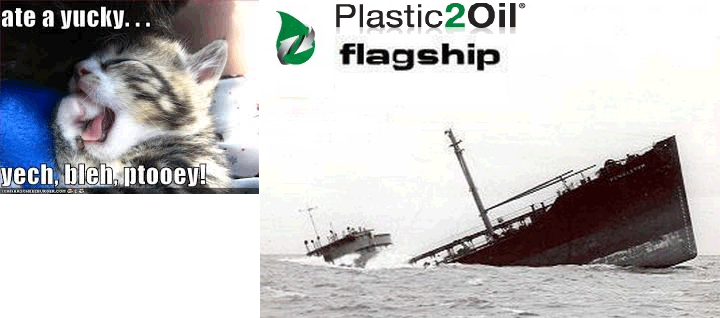Posted On: 05/20/2014 7:38:56 AM
Post# of 43068

Re: PaperProphet #8187
No. The benefits to the potential customer are obvious, if the processor works reasonably well.
Let's assume (unfortunately that's what we have to do) that the processor runs as claimed. Long up times between maintenance with little waste and costs limited to the initial cost of the processor operating the processor(s), operating the processors. I contend that, at worst, the company owning the processor will break even on the costs and benefits.
The benefits include the transfer of waste disposal costs to the break even operation of the processor. They can break even because they can use the resulting fuel themselves without sharing that value. The company can claim they are eliminating their waste in a more environmentally responsible manner.
Potentially, the company could collect plastic waste from external sources to increase the value of their operations.
P2O does not need to worry about the logistics of procuring and selling fuel. The cost of waste plastic is not an issue. No concern that the plastic supplier will ask for more for their waste stream as the value of that stream is realized. No need to deal with the ongoing operations themselves.
It's just a simpler model for all parties involved.
But they need to find the right customers. It is not at all clear how many of them exist given the limitations of the processor.
Good separation technologies will increase the number of potential customers.
Let's assume (unfortunately that's what we have to do) that the processor runs as claimed. Long up times between maintenance with little waste and costs limited to the initial cost of the processor operating the processor(s), operating the processors. I contend that, at worst, the company owning the processor will break even on the costs and benefits.
The benefits include the transfer of waste disposal costs to the break even operation of the processor. They can break even because they can use the resulting fuel themselves without sharing that value. The company can claim they are eliminating their waste in a more environmentally responsible manner.
Potentially, the company could collect plastic waste from external sources to increase the value of their operations.
P2O does not need to worry about the logistics of procuring and selling fuel. The cost of waste plastic is not an issue. No concern that the plastic supplier will ask for more for their waste stream as the value of that stream is realized. No need to deal with the ongoing operations themselves.
It's just a simpler model for all parties involved.
But they need to find the right customers. It is not at all clear how many of them exist given the limitations of the processor.
Good separation technologies will increase the number of potential customers.
techisbest


